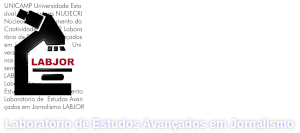Ementa
Após a apresentação de alguns conceitos e teses epistemológicas gerais, o curso se voltará uma análise do conhecimento científico, com ênfase na elucidação das complexas relações entre experiência e teoria, bem como no debate atual sobre o realismo científico. Serão abordados temas como as funções preditiva e explicativa das teorias científicas, o papel da evidência empírica na avaliação de teorias científicas, a objetividade do conhecimento científico, valores epistêmicos e valores sociais na ciência, os limites do conhecimento científico.
Programa (a ser oportunamente divulgado em https://www.unicamp.br/~chibeni)
Avaliação: A avaliação será baseada em trabalho de final de curso, individualizado para cada aluno, em seminários a serem apresentados pelos alunos sobre os projetos para esse trabalho, e na participação efetiva nas aulas. O trabalho deverá ter a forma de um artigo acadêmico. Seu objeto deverá ser a apresentação e análise crítica de um (ou mais) artigo ou livro referentes aos temas centrais discutidos no curso, a ser escolhido pelo aluno, de comum acordo como professor, e diferente para cada aluno.
Bibliografia geral:
(Indicações bibliográficas específicas serão oferecidas oportunamente)
1. Abrantes, P. C. Método e Ciência. Belo Horizonte, Fino Traço, 2014.
2. Cartwright, N. How the Laws of Physics Lie, Clarendon Press, Oxford, 1983.
3. Chalmers, A. F. What is this Thing called Science? 2nd. ed. Buckingham: Open University Press 1982.
4. Chibeni, S. S. Artigos e Textosdidáticosde filosofia da ciênciadisponíveisno site http://www.unicamp.br/~chibeni.
5. Churchland, P. M. & Hooker, C.A. (eds.) Images of Science. Chicago, University of Chicago Press, 1985.
6. Clarcke, S. P. & Lyons, T. D. (eds.), Recent Themes in the Philosophy of Science, Scientific Realism and Common Sense. (Australasian Studies in the Philosophy of Science, vol. 17.) Dordrecht, Kluwer Academic Publishers, 2002.
7. Clotet, J. Ciência e ética: Onde estão os limites? Episteme (Porto Alegre), n. 10, pp. 23-29, 2000.
8. Cohen, I. B. The birth of a new physics. London, Peguin, 1992.
9. Cupani, A. A propósito do ‘ethos’ da ciência. Episteme (Porto Alegre), n. 6, pp. 16-38, 1998.
10.Cupani, A. Limites da ciência?Episteme (Porto Alegre), n. 10, pp. 17-22, 2000.
11.Cushing, J. T., Delaney, C.F. & Gutting, G. M. (eds.) Science and Reality. Recent Work in the Philosophy of Science. Essays in Honor of ErnanMcMullin. Notre Dame, Indiana, University of Notre Dame Press, 1984.
12.Goldim, J. R. Rompendo os limites entre ciência e ética.Episteme (Porto Alegre), n. 10, pp. 31-37, 2000.
13.Dutra, L. H. Introdução à Teoria da Ciência. Florianópolis, Editora da UFSC, 1998.
14.Feyerabend, P. K. Against Method. London: Verso 1978.
15.Garcia, J. L. e Martins, H. O ethos da ciência e suas transformações contemporâneas, com especial atenção à biotecnologia. Scientiae Studia v.7, n.1, pp. 83-104, 2009.
16.Ghins, M. Uma Introdução à Metafísica da Natureza. Representação, realismo e leis científicas. Curitiba, Editora da UFPR, 2013.
17.Hacking, I. Representing and Intervening, Cambridge University Press, Cambridge, 1983.
18.Hahn, H., Neurath, O. &Carnap, R. A concepção cientifica do mundo – O círculo de Viena. Trad. F. P. A. Fleck. Cadernos de História e Filosofia da Ciência, n. 10, pp. 5-20, 1986. [1929]
19.Hempel, C. G. The Philosophy of Natural Science. Englewood Cliffs, Prentice-Hall, 1966.
20.Kuhn, T. S. The Structure of Scientific Revolutions. 2nd. ed. Chicago, University of Chicago Press, 1970.
21.Kuhn, T. S. The Road Since Structure. Chicago, University of Chicago Press, 2000.
22.Lacey, H. Ciência, respeito à natureza e bem-estar humano.Scientiae Studia v.6, n.3, pp. 297-327, 2008.
23.Lacey, H. Valores e Atividade Científica – volumes I e II. São Paulo, Associação Filosófica ScientiaeStudia/Editora 34, 2008 e 2010.
24.Lacey, H. Is Science Value-Free? Values and Scientific Understanding. London, Routledge, 2005.
25.Lakatos, I. &Musgrave, A. (eds.) Criticism and the Growth of Knowledge. Cambridge, Cambridge UniversityPress, 1970.
26.Lambert, K. &Brittan, G. G. Jr. AnIntroduction to thePhilosophyofScience, Englewood Cliffs, Prentice-Hall, 1970.
27.Laudan, L.Progress and its Problems. Berkeley and Los Angeles, University of California Press, 1977.
28.––––. Science and Values. Berkeley, University of California Press, 1984c.
29.––––. Science and Relativism. Chicago, University of Chicago Press, 1990.
30.––––. Beyond Positivism and Relativism, Oxford, Westview Press, 1996.
31.Losee, J. A Historical Introduction to the Philosophy of Science. 2 ed. Oxford, Oxford UniversityPress, 1980.
32.Lucie, P. A Gênese do Método Científico. Rio de Janeiro, Campus, 1977.
33.Marcuse, H. A responsabilidade da ciência. Traduzido do original em inglês por M. M. Pisani. ScientiaeStudia v.7, n.1, pp. 158-164, 2009.
34.Mariconda, P. R. Artigos diversos sobre Galileodispoíveis em: http://www.scientiaestudia.org.br/associac/pablo.asp#_blank
35.Musgrave, Alan. Common sense, science and scepticism: a historical introduction to the theory of knowledge. Cambridge University Press: Great British, 1993.
36.Nagel, E. The Structure of Science. Indianapolis and Cambridge: Hackett Publishing Company, 1979.
37.Neves, M. C. et al.“Galileu fez o experimento do plano inclinado?” Revista Electrónica de Enseñanza de lasCiencias, v. 7, n.1, 2008.
38.Oliva, A. É a ciência a razão em ação ou ação social sem razão? Scientiae Studia v.7, n.1, pp. 105-134, 2009.
39.Oliveira, M. B. &Fernandez, B. P. M. Hempel, Semmelweis e a verdadeira tragédia da febre puerperal. ScientiaeStudia, v.5 n.1, p. 49-79, 2007.
40.Popper, K. R. Conjectures and Refutations. 4.ed., revised. London: Routledge and Kegan Paul, 1972a.
41.Popper, K. R. Objective Knowledge. Oxford: Clarendon Press 1972b.
42.Popper, K. R. The Logic of Scientific Discovery. 5.ed., revised. London: Hutchinson 1968.
43.Psillos, S. Scientific Realism. How Science Tracks Truth, London and New York, Roudledge, 1999.
44.Salmon, W. Scientific Explanation and the Causal Structure of the World. Princeton, Princeton University Press, 1984.
45.Santos, C. A. Os dez mais belos experimentos da física. Textos sobre enquete da revista PhysicsWorld. (Prof. C. A. dos Santos, IF-UFRGS.)
46.Smart, J. J. C. Between Science and Philosophy. New York, Ramdom House, 1968.
47.Van Fraassen, B.C. The Scientific Image. Oxford, Clarendon Press, 1980.
48.––––. The Empirical Stance. New Haven, Yale University Press, 2002.
